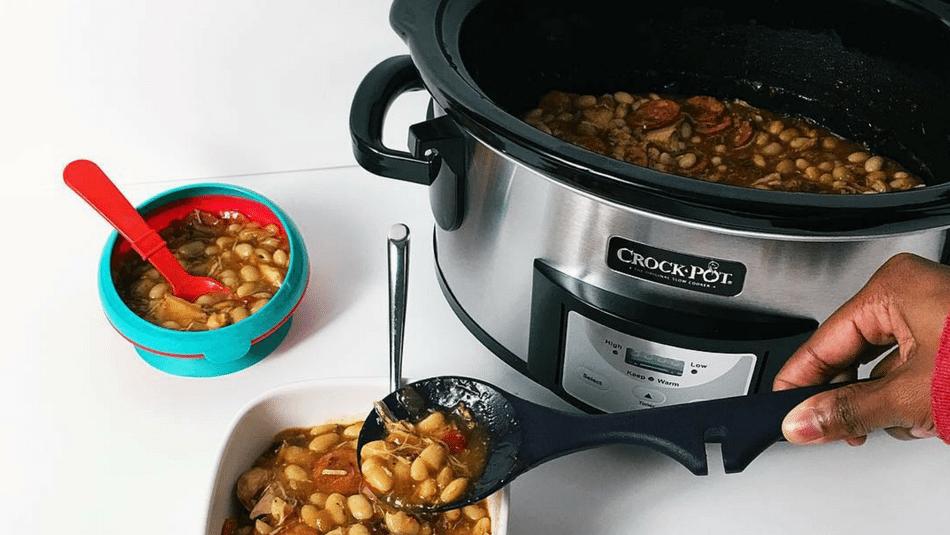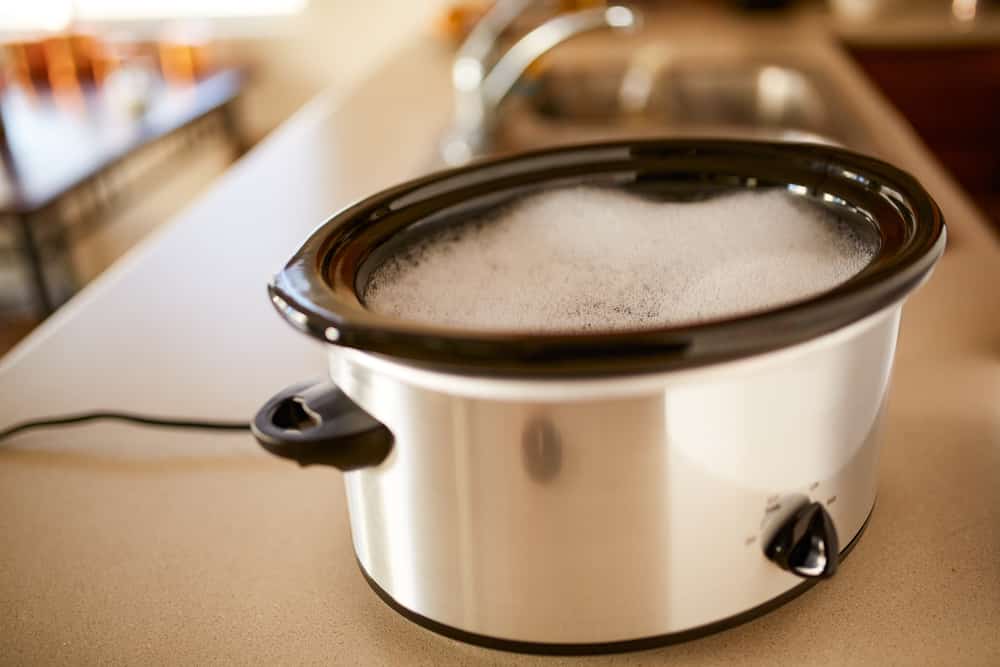Why does Food Cooked in a Slow Cooker have a Metallic Flavour?

Why Does Slow Cooker Food Taste Metallic?

Worktop appliances are a delight to use and may significantly simplify our lives whether we are busy working or seeking to create something excellent yet quick. Slow cookers have been utilized to prepare delicious meals while at work. Slow cookers use ceramic or porcelain pots that are ideal for slow-cooking food. However, they can occasionally emit a metallic taste, created by the materials themselves or by washing. This article will explain why your slow cooker may be imparting a metallic flavor to your food and how to avoid it.
Why Does Slow Cooker Food Taste Metallic?
According to many slow cooker users, putting raw onions and garlic in the cooker will cause the meal to taste metallic. This might be because onions and garlic must be cooked fast, and a low and slow cooking method may allow the onions and garlic to simmer in an unappealing manner. It also implies that your slow cooker needs to be ‘broken in.’ Slow cookers, like other new equipment such as toasters or ovens, may need to be used a few times before they stop smelling new.’ Another thing to consider is that if your slow cooker is new, you may need to clean it a few times before using it to remove any polishes and treatments applied to items to keep them bright and fresh. The chemicals utilized might leave an unpleasant aftertaste on your meal, as well as the metallic flavor you’re feeling. This may be more obvious in slow cookers than in other kitchen equipment since your food is in touch with these surfaces for a much longer amount of time.
How Can You Keep Food From Tasting Metallic When Cooked In A Slow Cooker?
Because the root of this problem is not well understood, it is difficult to provide a single strategy to lessen the danger of your slow-cooked food tasting metallic. One alternative remedy is to clean your slow cooker or cook the metallic taste off. A recommendation is to boil water with vinegar in the slow cooker, similar to removing limescale from a kettle or using a commercial equipment cleaning. Another option is to modify how you use your slow cooker. For example, before adding raw onion, garlic, and veggies to the slow cooker, try cooking them in a separate frying pan. This reduces the possibility of the veggies interacting with the metal in the cooker, resulting in an unpleasant aftertaste. As a last resort, if your slow cooker is still producing the metallic flavor, consider replacing it. You can evaluate which slow cooker is less likely to cause a metallic response or flavor by reading the reviews provided by previous customers. Modern slow cookers may have been engineered to eliminate this problem and feature more advanced technology. However, as previously said, the best thing to do is read reviews from other customers and research which slow cookers people prefer.











